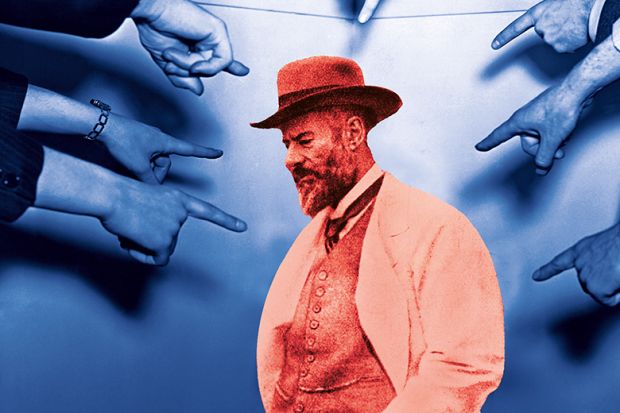“Since 1977, we’ve been recommending that graduate departments partake in birth control, but no one has been listening.”
So said the labour economist Paula Stephan, talking to an audience of young American scholars in 2015. She was speaking in demographic terms: there are ever more new PhD graduates than there are academic jobs to go around. And while not every doctoral candidate is set on an academic career, one survey suggests that more than three-quarters are. The shame of working so hard for so long, only to fail to land the longed-for job, is everywhere.
But shame is also abundant among those who somehow beat the odds and stay in academia.
There is a wealth of guidance available on how to navigate an academic career. Most of the counsel aimed at early career academics majors on what Megan MacKenzie, professor in international law at Simon Fraser University, calls the “holy trifecta” of publications in top journals, money (in the form of research grants) and professional networks. But MacKenzie concludes that such “toxic” advice is “staggering, unrealistic and overwhelming”.
THE Campus views: Researchers are too critical – we need to give ourselves (and others) a break
So should early career academics dismiss the career advice of mature colleagues? Not so fast – it all depends on who is giving the advice.
From my own experience, the best and most trustworthy career insights come from those academics who are willing to critically detach themselves from their own profession. One such person was the great German social historian Max Weber.
Weber may long pre-date the modern era of promiscuous academic reproduction, but it is interesting that even in his day, academia had a distinctly Sturm und Drang feel to it. In a 1917 guest lecture at the university of Munich, titled “Science as a Vocation”, he described academic life as “a mad hazard”. To endure it, his advice was both simple and striking: prepare yourself for regular bouts of professional shame and humiliation.
Personal experience has demonstrated that Weber’s advice is still relevant. Of course, every profession has a shame quotient. But early career academics need to realise, if they haven’t already, that inducing shame in academia is not just a blood sport – it is the very life blood of the profession.
This is for two compelling reasons. First is the rigid hierarchy that long pre-dates even Weber but that universities retain. This military-style echelon system lends weight to the carrot-flavoured sticks used to manage human resources and guard against excessive boat-rocking.
Promotion is a means not just to better pay but also to improved status; the motivational pulling power of a new title on the door of a larger office should not be underestimated. By contrast, failure to progress can be a source of shame and even contempt, especially when others overtake us. We hate it when our friends become successful, sang Morrissey; he should have added that if they’re colleagues, it’s even worse.
Second, to understand the routine humiliation that comes with being an academic, look no further than the senior academics who are the custodians of “professional capital”. According to Patrick Dunleavy, emeritus professor of political science at the London School of Economics, senior figures in academia have often acquired “mildly neurotic traits along with their eminence”. Usually, these personality quirks do not matter much – your august scholars will moderate how far they expose such hang-ups. But Dunleavy argues that there are crucial moments in academic life – such as job appointments and promotion decisions – when these quirks can be the source of real shame for those at the receiving end.
Take, for example, peer refereeing. The anonymity of the review process creates what psychologists call deindividuation. Or, to put it another way, the veil of anonymity can transform reviewers into heartless bastards.
This is the notorious “Reviewer 2” phenomenon. David Peterson, Lucken professor of political science at Iowa State University, analysed this in his 2020 Social Science Quarterly article, appropriately titled “Dear Reviewer 2: Go f’ yourself”. Peterson describes Reviewer 2 as “dismissive of other people’s work, lazy, belligerent, and smug”.
Although I am old enough to have circled the block a few times, I am still amazed by the endless creativity of those seeking new ways to put others to shame in academia. Early career academics who think they have the resilience to cope with such treatment should double-check that they have really thought that through.
“I have found that only a few…could endure this situation without coming to grief,” Weber told his audience in 1917. He died two years later of the Spanish flu, aged 56. But had he lived another 100 years, it is hard to believe that his observations would be greatly different. Indeed, it is hard to believe that the shame should not have driven even him out of the profession decades ago.
Michael Marinetto is a senior lecturer in management at Cardiff Business School.
后记
Print headline: Reviewer 2’s malice is an inescapable fact of academe
请先注册再继续
为何要注册?
- 注册是免费的,而且十分便捷
- 注册成功后,您每月可免费阅读3篇文章
- 订阅我们的邮件
已经注册或者是已订阅?

